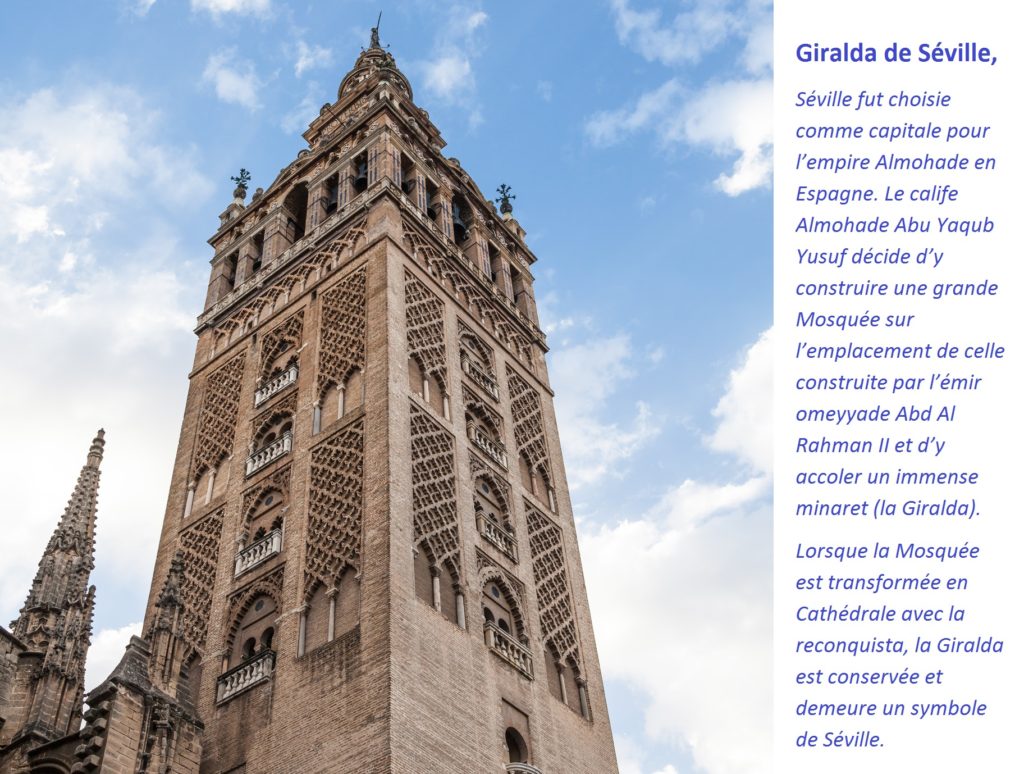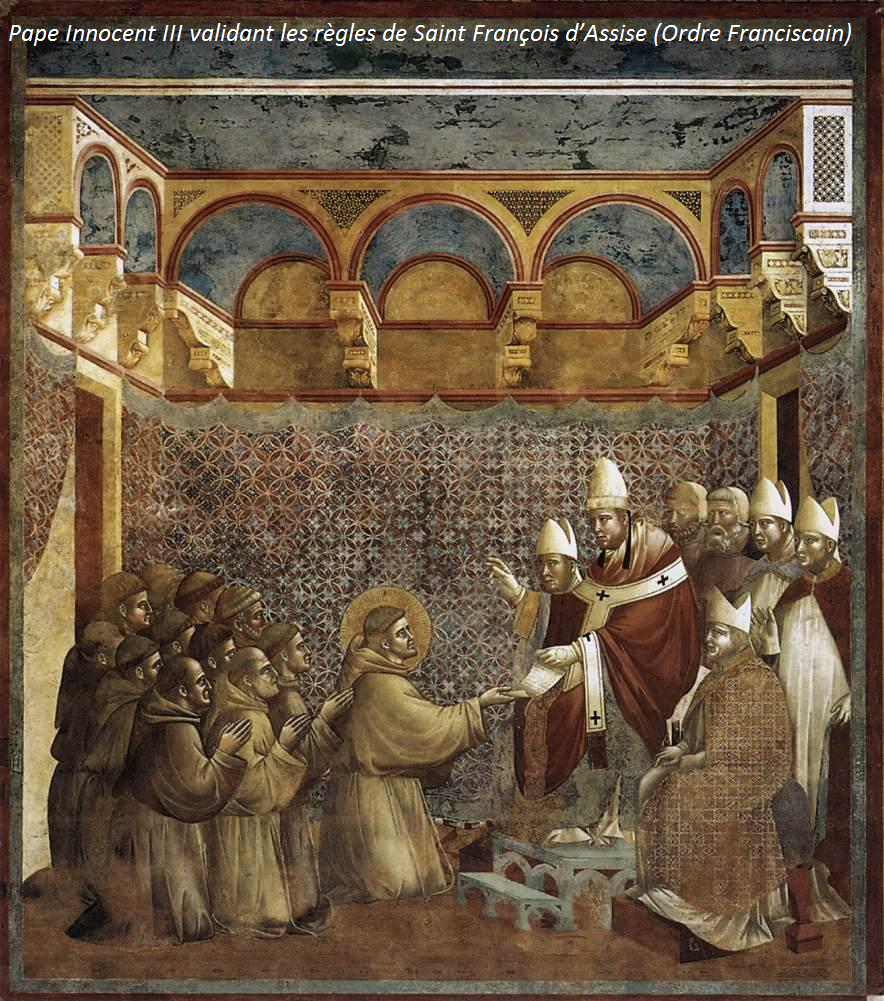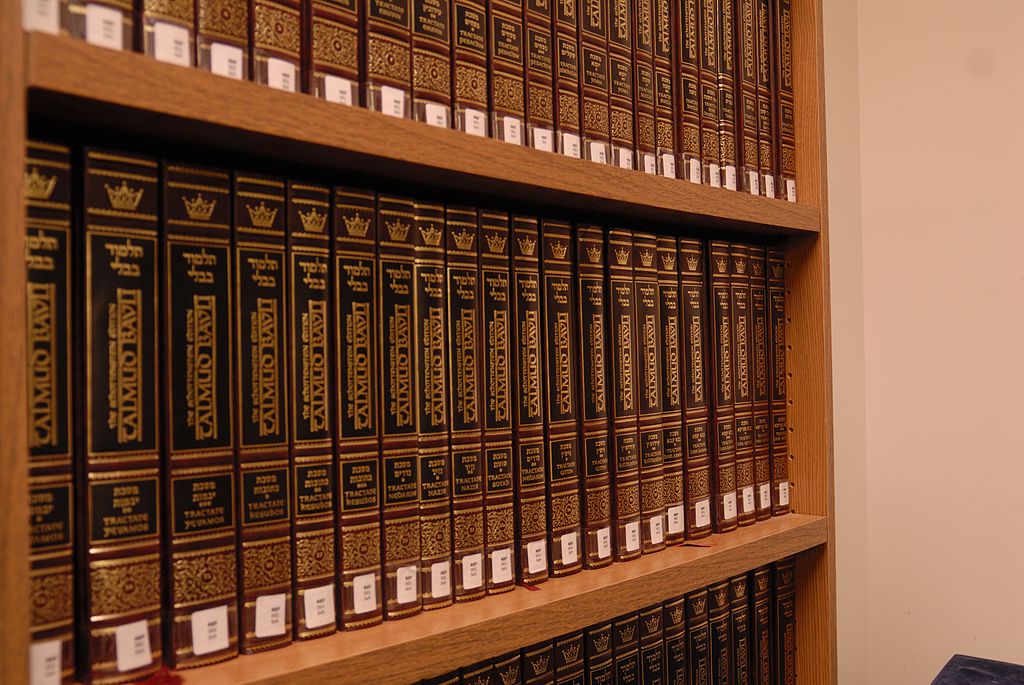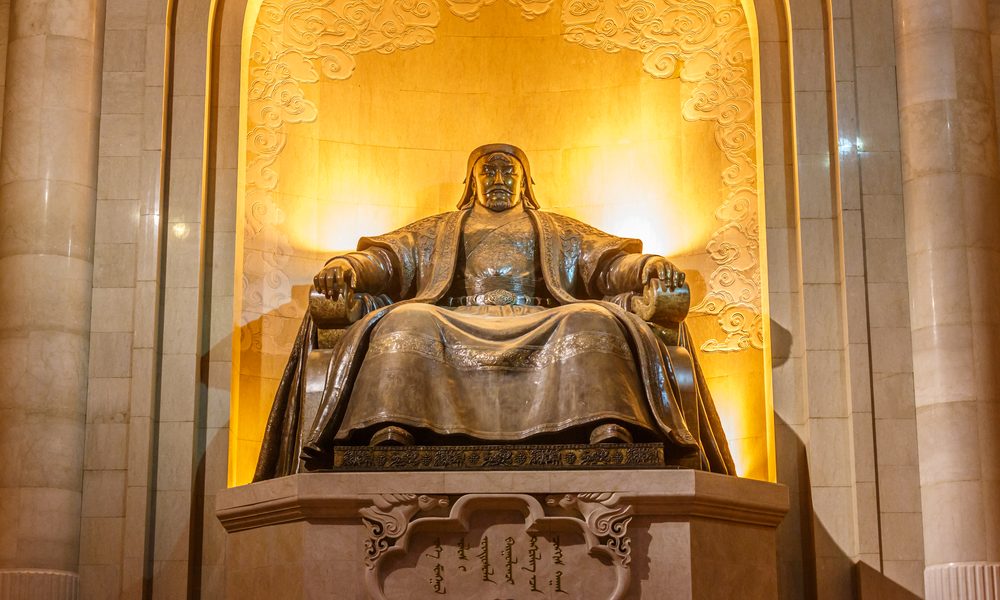
1210 AD to 1230 AD, Psalm 108: Genghis Khan.
This site was first built in French (see www.147thgeneration.net). The English translation was mainly done using « google translation ». We have tried to correct the result of this translation to avoid interpretation errors. However, it is likely that there are unsatisfactory translations, do not hesitate to communicate them to us for correction.
(for that click on this paragraph)
Summary
This generation of the 1210s and 1220s.
According to our count, this generation is the 108th generation associated with Psalm 108. It is in this Psalm 108 that we therefore find an illustration of the facts of this generation.
Indeed, as indicated for the previous generation, Saladin’s revival of Jerusalem, coupled with a policy of the latter, much more conciliatory towards the Jews than that of the Crusaders, gives the signal back to Zion to many Jews in exile.
Frightened by the suffering that was threatening them on all sides and at the same time driven by the desire to see the Holy Land, which the poet Judah Halevi had awakened in so many hearts, three hundred rabbis from France and England emigrated to Jerusalem (1211 ), where they were welcomed with kindness by Sultan Aladil, brother of Saladin. The most famous of them were Jonathan Kohen, of Lunel, a supporter of Maimonides, and Simson ben Abraham, who, on the contrary, had attacked the author of the Guide. These emigrants raised synagogues and schools in Jerusalem and implanted in the East the remarkable teaching of the school of tossaphists.
The psalm associated with this generation takes up part of the psalm 60 associated with generation 60. This is not accidental. In the generation corresponding to Psalm 60, Nehardea’s academy disappeared, bearing the brunt of the struggle between Rome and Persia, endangering Babylonian Judaism and, through it, Judaism altogether in view of the preponderant place occupied by the Academies. Babylonian in the survival of the whole of world Judaism (limited approximately to the edges of the Mediterranean) raising the concern of the psalmist.
Between Psalm 60 and Psalm 108 (the present psalm), there is a period of forty-nine generations, the equivalent of a whole night’s guard, almost a millennium.. To the concern expressed in the first seven verses of the psalm, a response of hope is given by the first seven verses of the psalm of this generation where the return to the land of Israel is initiated. To the concern then expressed in the first seven verses of Psalm 60, a response of hope is given by the first seven verses of the psalm of this generation where the return to the land of Israel is initiated. The concern expressed after the disappearance of the academy of Nehardea when the intellectual survival of the Jewish people was not justified. Not only did Judaism survive outside of Babylonia, but many Jewish personalities whether in Muslim Spain or in Christian Europe allowed an unprecedented intellectual rise of Judaism which is on the one hand a guarantee of survival for the generations remnants of exile but also a hope of rebirth in the land of Israel, a true cradle of Judaism.
To echo the generation that sees the end of an era in Babylonian Judaism with the demise of Nehardea’s academy, this time it is the Mongols who take over power in Babylon after building the largest empire on earth in Babylon. all the time. The Mongol invasion is the symbol of this long period of exile in which the Jewish people must survive through the different empires that are formed and are successively destroyed by new emerging empires. Thus Babylon, symbol of the exile of Israel, is definitely absorbed by a new emerging empire: the Mongol empire. The empires that successively subjugated the people of Israel all eventually disappear while the people of Israel forced to live among the people who are created and who die, crosses the time without disappearing.
Talk
Return to Sion
Before drawing a parallel between the Psalm of this generation and the significant events of the corresponding generation, it should be noted that a large part of this psalm takes up a long passage from Psalm 60.
Thus the whole following passage (verses 8 to 14 of Psalm 108) corresponds exactly to verses 8 to 14 of Psalm 60 (which is associated with the generation of the years 250 AD to 270 AD):
(Excerpt from Psalm 108 associated with this generation: verses from 8 to 14,
these verses are identical to verses 8 to 14 of Psalm 60,
in both Psalms, this excerpt concludes the psalm )

- God spoke with His holiness, that I would rejoice, that I would allot a portion, and that I would measure the valley of Succoth.
- Gilead is mine, Manasseh is mine, and Ephraim is the strength of my head; Judah is my prince.
- Moab is my wash basin, on Edom I shall cast my shoe; on Philistia I shall shout.
- Who will bring me to the fortified city? He Who led me up to Edom.
- Is it not You, O God, Who has forsaken us, and does not go, O Lord, in our hosts?
- Give us help against the adversary, for man’s salvation is futile.
- With God we shall gather strength and He will trample our adversaries.
That is, the corresponding passage of the psalm (verses 8-14) has been « copied / pasted » (using modern vocabulary) in the same place of the psalm of this generation, only the beginning of the psalm is changed .
Before drawing a parallel between the two generations, one must first understand what the beginning of the psalm of this generation expresses (verses 1 to 7).
If during the reign of Youssuff Yaakoub (1184-1199) increases the pressure of conversion on Jews under Almohad domination, it marks the peak of the Almohads of Spain. After his reign the decline of the Muslim presence in Spain begins at the same time that the Christian Reconquista scores points.
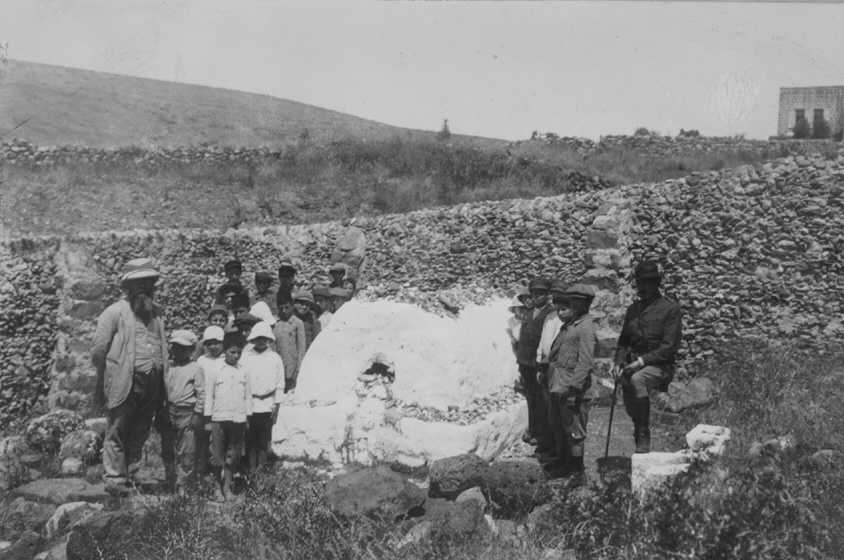
Maimonides who has marked the previous generations dies to the previous generation in 1204 at Fostat.
Condemned to exile during his lifetime, unable to establish himself in the promised land, he is buried in the promised land at Tiberias alongside his father and marking the return of the land of Israel in the reality of the Jews.
Indeed, as indicated for the previous generation, Saladin’s revival of Jerusalem, coupled with a policy of the latter, much more conciliatory towards the Jews than that of the Crusaders, gives the signal back to Zion to many Jews in exile.
This return is especially significant from the present generation marked by a real movement of aliyah presaging a desire that will be more and more marked in an exile where the Jews have less and less of their place:
- The Jews [1] of Ascalon were the first to take advantage of this opening (due to the resumption of the Holy Land by Saladin), thus contributing to the rebirth of a community in this city. Jews from the Maghreb countries, but mostly living in Egypt for some time, joined them. The origin of the third component of the new community is more surprising: it was, in the words of al-Harizi, « the righteous of the Most High, who come from the land of Tsarfat to reside at Zion, » Tsarfat, it must be remembered, then designated the northern part of France. It must therefore be understood that immigration to the Holy Land had resumed thanks to the tolerance given to the creation of new Jewish settlements in lands reclaimed from the Crusaders. A brief note of the sixteenth century confirms the existence of this migratory movement:
- In the year 171 (of the little computation, 1210-1211) God incited the rabbis of Tsarfat and the rabbis of England to go to Jerusalem. They were more than three hundred. The king greatly honored them and he built synagogues and houses of study for them. Our great master, the high priest Rabbenu Jonathan Ha Cohen, also visited. A miracle happened for them: they prayed for the rain and they were answered. The name of heaven has been sanctified by them.
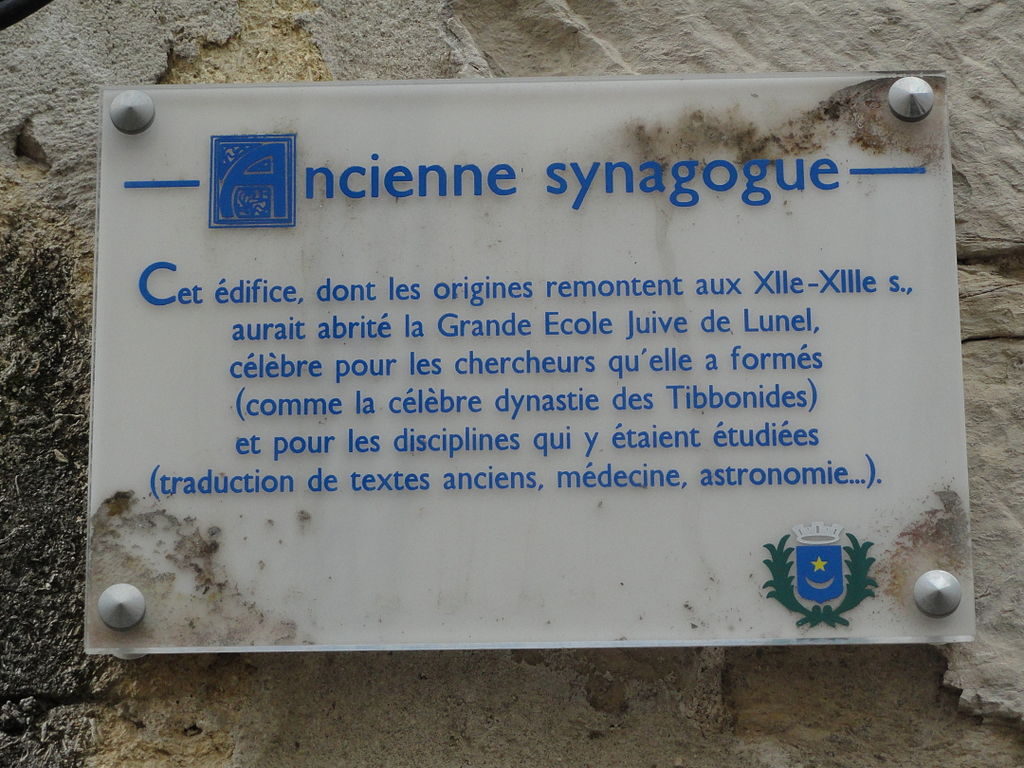
- […] It seems that this movement of immigration has gone through two phases: the first, that we can date from years 1209-1210, was undoubtedly led by Rabbenu Jonathan who came from Lunel, and which is undoubtedly the only Provençal mentioned mentioned in this context ; as for the second, the departures took place in small groups during the summer of 1211. A first group, to which had joined the eminent tossaphist Joseph son of Baruch de Clisson and his brother Mair, had passed by Cairo where they were received by Abraham, the own son of Maimonides.
Innocent III
In fact, this aliyah before the time is due to hardening of the Christian authorities in Europe, particularly in France and the battle against the Albigensian includes the fight against the Jews, often allies of these:
- And yet [2], more than ever (Graetz laments that at the death of Maimonides, there is no succession of the same level), the Jews needed a firm and valiant guide. For, at the beginning of the thirteenth century, they had to endure the hostility of an adversary as powerful as malevolent.
- Pope Innocent III (1198-1216), who bowed peoples and rulers under the yoke of the Church, enslaved the spirits, persecuted independent thinkers, created the Inquisition, and brought to the stake all those who seemed to him heretics, Pope was also an implacable enemy of Jews and Judaism. He, the powerful prince of the Church, who could distribute crowns and countries and had managed, with the help of his legion of legates and monks Dominicans and Franciscans, to submit to his domination all Europe, since the ocean Atlantic to Constantinople, and from the Mediterranean to the Arctic, he bore with difficulty the existence of the little Jewish people.
- At the beginning of his reign, however, he showed himself rather favorable to the Jews, and when, on the death of Saladin, the Sultan of Egypt who possessed Jerusalem, a new crusade was organized and that, according to their custom, the Crusaders they plundered and killed the Jews, he intervened on their behalf (Sept. 1109). He also forbids Christians to baptize them by force, to rob them of their property without legal authorization, to massacre them, to attack them with whips or stones during their holidays or to desecrate their cemeteries. Strangely, it is not a feeling of humanity and justice that provoked the intervention of the pope, but the singular thought that the Jews must live, and live in abjectness and misery, for the greater glory of the Christianity. But if Innocent III wanted life to be saved for the Jews, he did not hate them any less. Thus, he reproached (1205) his benevolence for the Jews with the King of France Philippe-Auguste, who, however, had pillaged, imprisoned, expelled them, and only recalled them to his country when pressed by the need of money !
- Innocent III was the first pope who treated the Jews with inhuman harshness, and if, in his spirit, their degraded existence had not contributed to the glorification of Christianity, he would have preached against them, as he did against the Albigenses. , a real war of extermination. Innocent III perhaps felt such violent hatred for the Jews, because he felt that their religious doctrines were a protest against the loose morals of the Christian prelates of the time, and therefore seemed to encourage heretics in their opposition to the Church. He would have been right. For it was in their relations with educated Jews, or in Jewish works, that the Albigenses in the south of France had partly drawn the thought of repelling the authority of the papacy. There was even a sect among the Albigenses, who declared loudly that the doctrine of the Jews was preferable to that of the Christians.
The emigration of Jews from France
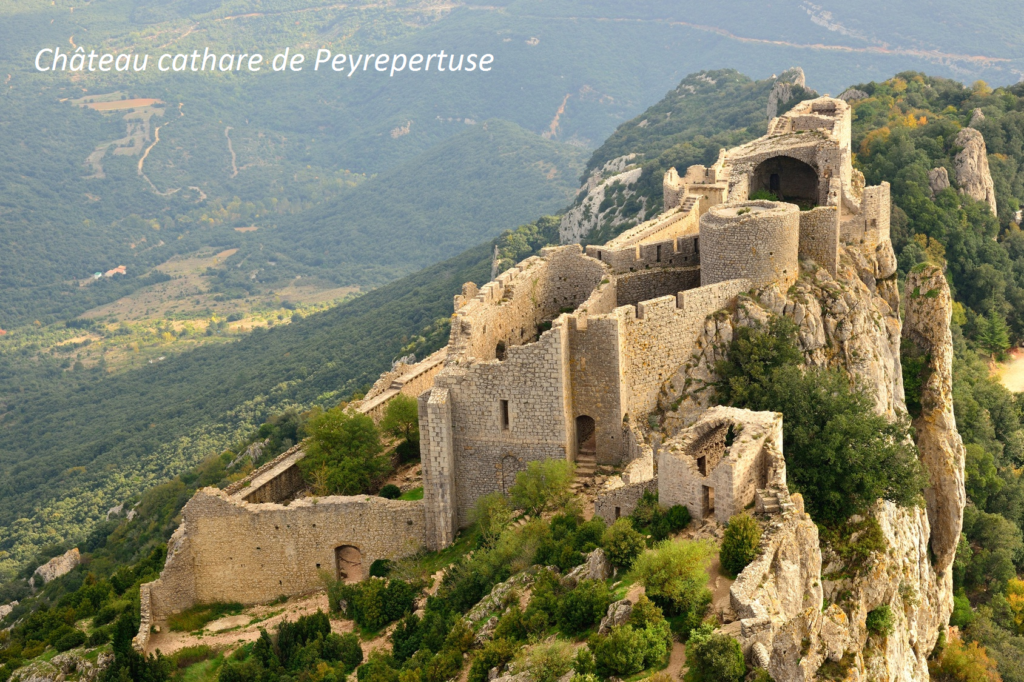
Frightened by the suffering that was threatening them on all sides and at the same time driven by the desire to see the Holy Land, which the poet Judah Halevi had awakened in so many hearts, three hundred rabbis from France and England emigrated to Jerusalem (1211 ), where they were welcomed with kindness by Sultan Aladil, brother of Saladin. The most famous of them were Jonathan Kohen, of Lunel, a supporter of Maimonides, and Simson ben Abraham, who, on the contrary, had attacked the author of the Guide. These emigrants raised synagogues and schools in Jerusalem and implanted in the East the remarkable teaching of the school of tossaphists.
- Frightened by the suffering that was threatening them on all sides and at the same time driven by the desire to see the Holy Land, which the poet Judah Halevi had awakened in so many hearts, three hundred rabbis from France and England emigrated to Jerusalem (1211 ), where they were welcomed with kindness by Sultan Aladil, brother of Saladin. The most famous of them were Jonathan Kohen, of Lunel, a supporter of Maimonides, and Simson ben Abraham, who, on the contrary, had attacked the author of the Guide. These emigrants raised synagogues and schools in Jerusalem and implanted in the East the remarkable teaching of the school of tossaphists.
It is this forced renaissance of the Jewish presence in the land of Israel, following the Jewish cultural boom in Europe, that the beginning of the psalm of this generation honors:

- A song, a psalm of David.
- My heart is steadfast, O God; I shall sing and play music, even my glory.
- Returning to the Holy Land, Jews can once again honor God on their ancestral land.
- Awaken, you psaltery and harp; I shall awaken the dawn.
- The dawn is the end of the exile (the night), the psalmist is eager for it to come, the present return of the Jews to their land being only a sign of the future definitive return of the people of Israel on his land.
- I shall thank You among the peoples, O Lord, and I shall play music to You among the kingdoms.
- But of course the exile is not finished, the Jewish people within the nations will continue to remain faithful to the divine covenant and to proclaim it to other peoples.
- For Your kindness is great above the heavens, and Your truth is until the skies.
- Lift Yourself above the heavens, O Lord, and over all the earth is Your glory.
- In order that Your beloved ones be released, save with Your right hand and answer me.
If the psalmist expresses his trust in God in these verses, he is not unaware that many hardships still await the Jewish people for the rest of the night before the dawn ends up pointing. In order to reach the end of the night, the people of Israel will need divine help.
Assessment after a millennium
The continuation of the Psalm is common with the corresponding passage of Psalm 60 evoking an episode of Samuel (Samuel I, Chapter 7 verses 15-16 and Samuel II, Chapter 8, verses 1 to 14, also reported in Chronic I, Chapter 18).
In the generation corresponding to Psalm 60, Nehardea’s academy disappeared, bearing the brunt of the struggle between Rome and Persia, endangering Babylonian Judaism and, through it, Judaism altogether in view of the preponderant place occupied by the Academies. Babylonian in the survival of the whole world Judaism (limited approximately to the periphery of the Mediterranean).
(extract of the psalm 60 associated with the generation of the years 250 AD to 270 AD,
last part of verses 3 to 6 )
- O God, You have forsaken us; You have breached us; You were angry with us. You shall restore us.
- You caused the land to quake; You split it; heal its breaches for it has faltered.
- You have shown Your people harshness; You have given us to drink wine of bewilderment.
- You have given those who fear You trials with which to be tested, in order to beautify [Your behavior] forever.
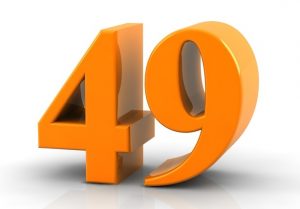
Between Psalm 60 and Psalm 108 (the present psalm), there is a period of forty-nine generations, the equivalent of a whole night’s guard. To the concern expressed in the first seven verses of the psalm, a response of hope is given by the first seven verses of the psalm of this generation where the return to the land of Israel is initiated.
If there are still many generations of exile, generations of the night, a tiny glimmer of the coming dawn is perceptible. The concern expressed after the disappearance of the academy of Nehardea when the intellectual survival of the Jewish people was not justified. Not only did Judaism survive outside of Babylonia, but many Jewish personalities whether in Muslim Spain or in Christian Europe allowed an unprecedented intellectual rise of Judaism which is on the one hand a guarantee of survival for the generations remnants of exile but also a hope of rebirth in the land of Israel, a true cradle of Judaism.
Before the generation of Psalm 60, most of Jewish culture was limited to the books of the Bible. In the millennium that has passed since this generation, the Jews have been able to create a whole new set of texts that allow them to survive in exile, be it the Talmud or all the legacy left by the high characters who have succeeded one another in the last generations, especially from Rashi to Maimonides. If the psalmist does some sort of inventory for this generation, this is not a coincidence, because from the next generation, this legacy of exile will be fought by the new masters of Europe.
The Mongols
To echo the generation that sees the end of an era in Babylonian Judaism with the demise of Nehardea’s academy, this time it is the Mongols who take over power in Babylon after building the largest empire on earth in Babylon. all the time.
The Mongols, an animist people, who had settled on Kyrgyz lands in Upper Asia are forced in the twelfth century, following pressure from other peoples, to abandon Central Asia and take refuge in Turkestan. That’s when Genghis Khan intervenes in the story, a character who will change the world and eventually the communications between the West and Asia (Marco Polo’s trip among others is one of the consequences).
As evoked in Psalm 60, the end of the Psalm evokes an episode of Israel’s history in the time of King David. As we saw for Psalm 60, the agreement with the king of Hamat is the sign of the future exiles of the people of Israel, since Hamat, whose king makes a pact with David, will be the symbol of the exile of the two future kingdoms of Israel. During the exile of Samaria, it is the inhabitants of Hamat who will replace the Jews of this kingdom. After the fall of Jerusalem, part of the Jews of the Kingdom of Judah will be deported to Hamat. In the victory of David, there are already the signs of the future exiles of the people of Israel condemned to seek each time a new land where to settle until history forces them to a new exile.
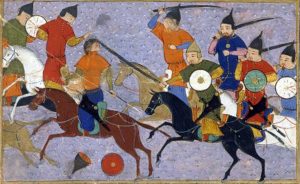
The Mongol invasion is the symbol of this long period of exile in which the Jewish people must survive through the different empires that are formed and are successively destroyed by new emerging empires. Thus Babylon, symbol of the exile of Israel, is definitely absorbed by a new emerging empire: the Mongol empire. The empires that successively subjugated the people of Israel all eventually disappear while the people of Israel forced to live among the people who are created and who die, crosses the time without disappearing.
If the conquest was certainly not idyllic for the Jews of the countries conquered by the Mongols, the cohabitation with the latter, once the pangs of the installation of the latter are absorbed, is going rather well. This is the case for the community of Babylon that accommodates the new master of the place without finding his past glory.
The common passage with Psalm Sixty evokes « that I would allot a portion, and that I would measure the valley of Succoth. » which, in reference to the corresponding episode of the Bible, evokes the fate reserved by David to the vanquished Moabites.
Namely that among these one « measured » two out of three lots that were intended for death (executed). The fate reserved by the Mongols for the vanquished is quite comparable to that:
Genghis Khan has left the memory of innumerable atrocities and the justified image of a fierce and cruel nomad. The list of Mongol atrocities is impressive, Beijing is looted for a month, its homes burned and its inhabitants slaughtered. When taking Merv, with the exception of 400 artisans, all the inhabitants are beheaded and their heads stacked in pyramid to adorn the walls of the city in ruins. To take a city, it happens that the Mongols requisition the peasants of the surroundings and that, before approaching the defenses of the enemy, they send them to be killed in the first lines. Destroying the monuments, grazing their horses in the cultivated fields, slaughtering all living beings « including dogs and cats », the riders of Genghis Khan are preceded by a terrifying reputation. This obviously serves the Mongol designs; in advance, their enemies are annihilated by fear.

[1] Simon Schwarzfuchs: « Jews in the time of the Crusades ». Chapter: « In the Second Kingdom of Jerusalem ». (French: « Les Juifs au temps des Croisades ». Chapitre : «Dans le deuxième royaume de Jérusalem » (p.161 à 163) ).
[2] Henri Graetz: « HISTORY OF THE JEWS / THIRD PERIOD – DISPERSION ». Second epoch – Science and Jewish poetry at their peak Chapter VIII – Dissensions in Judaism. Obligation to carry the wheel – (1205-1236). (French: « HISTOIRE DES JUIFS / TROISIÈME PÉRIODE — LA DISPERSION ». Deuxième époque — La science et la poésie juive à leur apogée Chapitre VIII — Dissensions dans le judaïsme. Obligation de porter la rouelle — (1205-1236).

